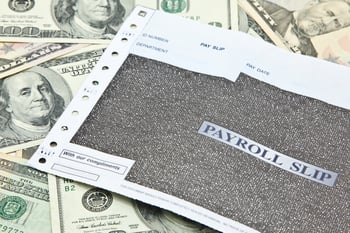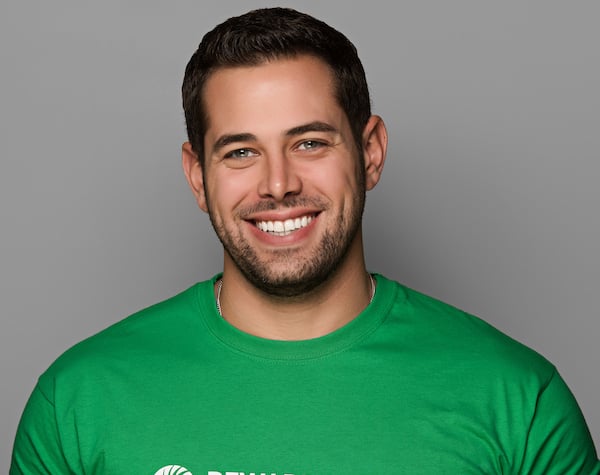
5 min read
It’s resonated in my head ever since I went on my first interview. Wear a suit, bring three copies of your resume and never ask about salary! Two out of three of those are sound advice (thanks, Mom), but the third one is one of the most destructive and bad pieces of advice out there. I’ve seen it dished out on major career sites, but let me tell you, not asking about salary is a horrible mistake for a candidate. If you were buying a house, you would ask the price, if you were trying a new restaurant, you’d likely check out the menu. So why do we dance around salary on interviews like school children that have been chastised?
It’s got to stop.
In a highly competitive market, avoiding the salary and benefits conversation until it’s too late in the game has caused multiple problems on both sides of the fence.
Candidates are investing multiple hours in an interview process, taking time off work only to find out that their dreams are crushed because their expected salary is $30k over budget for a role they’ve already fallen in love with. Hiring managers are avoiding the conversation altogether because they feel like it’s HR’s job to pass along salary information, and HR plays the “what do you think is reasonable for your role?” card. No one wants to talk about it, and it winds up being a vicious game of hot potato. So what can recruiters and candidates do about this horrible phenomenon that’s screwing up a great opportunity?

To candidates:
- Be comfortable with being uncomfortable. It’s one of my CEO’s favorite things to say, and I think it applies to job interviews as well. Trust me, one of the first things I teach my team members to have a conversation about includes salary and benefits. So if you’re not asking, they should be. At the end of your interview, you should walk out feeling like you received an honest answer, and know that you and your interviewer are on the same page.
- Come prepared. And I don’t just mean skimming the latest news article about the company (though you should do that, too). If the company you’re interviewing with has a dedicated section on its website about benefits, read it. And then read it again. Think about it: If the salary isn’t in line with what your expectations are, you should be able to calculate whether the benefits make it worthwhile.
Don’t be afraid to get into the nitty gritty. Ask me questions like, what is the standard paycheck reduction if I were to get your highest cost health care plan, or if you’ll be given a cell phone or monthly commuter allowance? A $60 monthly deduction versus a $300 monthly deduction could - and should - factor into your decision. Are there other benefits the company is exploring?
- Be realistic. I’m going to ask you what your current compensation is. Don’t lie. There’s no need to. My next question will be what are your expectations for this role, the one you’re applying to. So chances are, you’ll want a jump in salary. That’s OK. It’s important to know what salary you’re comfortable living with and how your own abilities warrant that salary. We’ll also go over your expectations of the company - working hours, how teams are (or aren’t) structured and more. If you’re not engaged from the start with my company, then we might not work out. By setting realistic expectations, we can both have a better relationship.
So be honest! Say you’ve been working at a company for five years and have made a small increase in salary, tell me if that’s a reason you’re disgruntled. I’ll listen. But keep in mind: You should walk into an interview knowing the market rate for your transferable skills. Because I already do.
To recruiters and HR professionals:
- Put away your old-school books. Teach your team to talk about salary and benefits. Your team members should know your benefits inside-out, and be prepared to talk about them at any (and every) stage of the game. Hiring managers outside of HR should be equipped with information, either a link to an FAQ or a direct line of communication to your benefits director to discuss candidate queries.
- Prep past the salary. Think about what makes your company unique. Everyone is taught now to say “we’ve got a great culture” - but really, what the hell does that mean? Know that you have to show, not tell, a candidate what your culture is. That involves getting up outside of the interview room and taking a stroll during your organization’s busy hours. Don’t be afraid of hiding anything about your company from a candidate.
- Foster transparency. Everywhere. From your Glassdoor profile to your corporate website and blog, candidates should be able to get a clear sense of who your company is. Remember, engaged employees are more than just happy, smiling faces. Your employees are your best advocates, so use them to tell your story.
Candidates and recruiters are both to blame for this sad turn of events. But though both sides are to blame, we can - and will - make it right. So at your next interview, or during your next phone screen, open that door. Or just bring a copy of this blog post to your next interview and quietly slide it across the table. It can replace that third copy of your resume you’re carrying around.

 Chris Gannon
Chris Gannon


